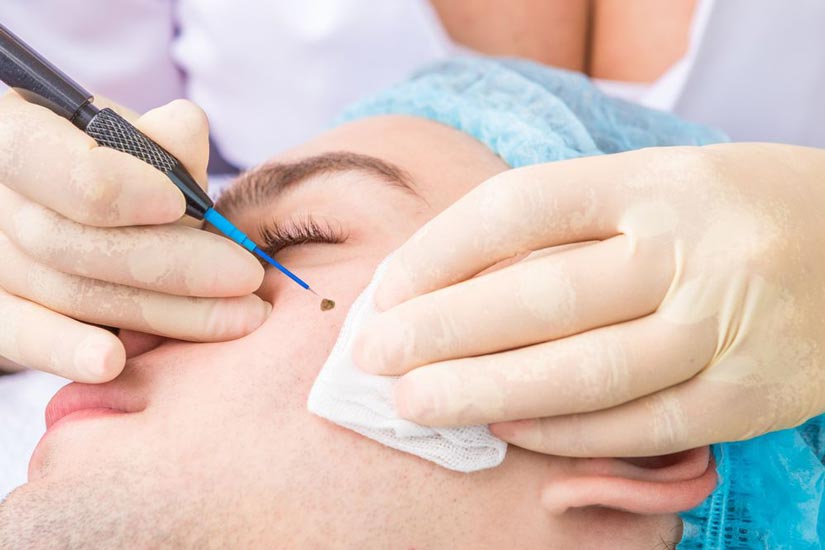Skin tags are benign growths that often appear on various parts of the body, including the neck, armpits, eyelids, and under the breasts. While they are harmless, their presence can be bothersome for many individuals. Skin tags may cause discomfort, especially if they become snagged on clothing or jewelry, leading to irritation and potential bleeding. As such, many people seek their removal. In this context, the expertise of dermatologists plays a crucial role. This blog explores the significance of consulting a dermatologist for skin tag removal near me, highlighting their expertise, the methods they employ, and the benefits of professional treatment.
Understanding Skin Tags
Before diving into the dermatologist’s role, it’s essential to understand what skin tags are. These small, soft pieces of skin are usually flesh-colored or slightly darker and can range in size from a few millimeters to several centimeters. Skin tags are composed of collagen fibers and blood vessels surrounded by skin. They are common among adults, especially those who are overweight, have diabetes, or experience hormonal changes.
While skin tags are not cancerous and do not require removal for health reasons, many individuals choose to have them removed for aesthetic reasons or due to discomfort. Dermatologists are specially trained to diagnose and treat skin conditions, including skin tags, making them the ideal professionals for this procedure.
Why Consult a Dermatologist?
- Expert Diagnosis: Dermatologists are trained to differentiate between various skin growths. Not all growths are skin tags; some may resemble skin tags but could be warts, moles, or other skin conditions that require different treatments. A dermatologist will conduct a thorough examination and may perform a biopsy if there’s any doubt about the nature of the growth.
- Personalized Treatment Plans: Every patient is unique, and a dermatologist can create a tailored treatment plan based on individual needs and preferences. They will consider factors such as the size, location, and number of skin tags, as well as the patient’s overall health and skin type.
- Safe Removal Procedures: Dermatologists are skilled in various removal techniques, ensuring that the procedure is performed safely and effectively. Common methods include:
- Cryotherapy: This involves freezing the skin tag with liquid nitrogen, causing it to fall off within a few days.
- Electrosurgery: This technique uses high-frequency electrical currents to remove the skin tag by cutting it off and sealing the wound.
- Surgical Excision: For larger skin tags, a dermatologist may recommend excising the growth with a scalpel. This method ensures complete removal and minimizes the risk of recurrence.
- Ligation: This technique involves tying off the skin tag with a string or suture to cut off its blood supply, causing it to eventually fall off.
Each method has its pros and cons, and a dermatologist will discuss the most appropriate option based on the individual case.
- Post-Removal Care: After a skin tag removal procedure, proper care is crucial for healing. Dermatologists provide patients with detailed aftercare instructions, helping them manage any potential discomfort or complications. This includes information on how to clean the area, when to apply ointments, and signs of infection to watch for.
- Addressing Concerns: Many individuals have concerns about pain, scarring, or the potential for skin tags to return. Dermatologists can provide information on what to expect during and after the procedure, helping to alleviate fears and ensuring that patients feel informed and comfortable.
The Benefits of Professional Skin Tag Removal
- Minimized Risks: Attempting to remove skin tags at home can lead to complications, such as infections, scarring, and improper removal. Professional dermatologists have the expertise to minimize these risks, ensuring a safe and effective procedure.
- Enhanced Results: With their specialized training and experience, dermatologists can achieve better cosmetic results compared to at-home methods. This is particularly important for skin tags on visible areas, such as the face or neck, where cosmetic outcomes matter most.
- Comprehensive Skin Care: By consulting a dermatologist, patients can benefit from comprehensive skin care. Dermatologists can address any other skin concerns, such as acne, rosacea, or skin aging, providing holistic treatment options tailored to the individual’s needs.
- Long-Term Management: For patients prone to developing skin tags, a dermatologist can offer advice on lifestyle changes and preventive measures. This might include weight management, skin care routines, or monitoring hormonal changes, all of which can help reduce the likelihood of new skin tags forming.
When to See a Dermatologist
If you notice any of the following signs, it’s time to consult a dermatologist:
- Rapid Growth: If a skin tag grows quickly or changes in appearance, it’s essential to have it evaluated to rule out any underlying issues.
- Pain or Discomfort: If a skin tag becomes painful, irritated, or bleeds, a dermatologist can assess the situation and recommend appropriate treatment.
- Multiple Skin Tags: For individuals with multiple skin tags, a dermatologist can provide guidance on removal options and preventive measures.
Skin tags may be common and generally harmless, but their presence can lead to physical discomfort and emotional distress for many individuals. Consulting a dermatologist for skin tag removal is a prudent choice, offering expert diagnosis, personalized treatment plans, and safe removal procedures. With their specialized knowledge and experience, dermatologists ensure a positive patient experience and high-quality results.
Choosing to seek professional help not only minimizes risks associated with DIY removal methods but also enhances the likelihood of achieving aesthetically pleasing outcomes. If you are struggling with skin tags or have concerns about your skin, don’t hesitate to reach out to a dermatologist. Their expertise can provide you with the trust and assurance you need as you embark on your journey to healthier, more comfortable skin.

